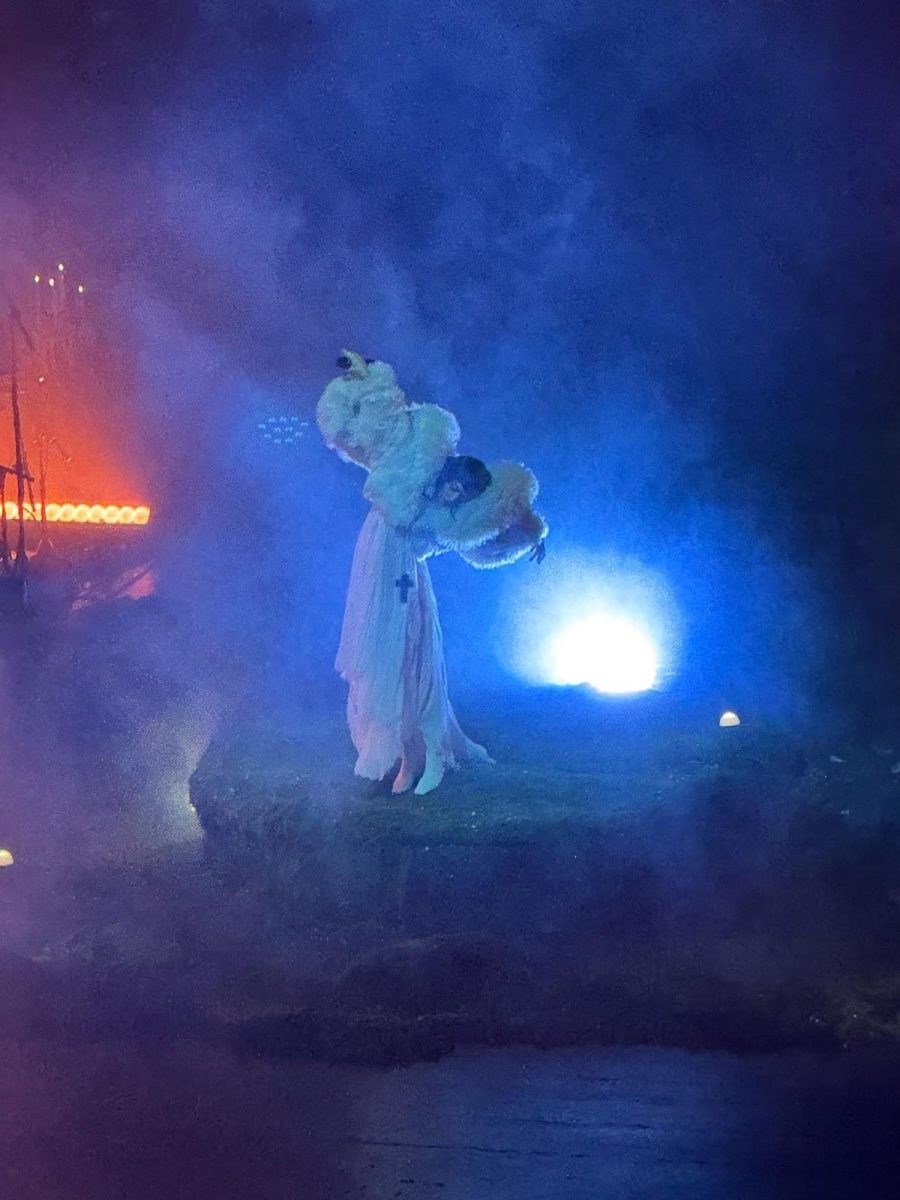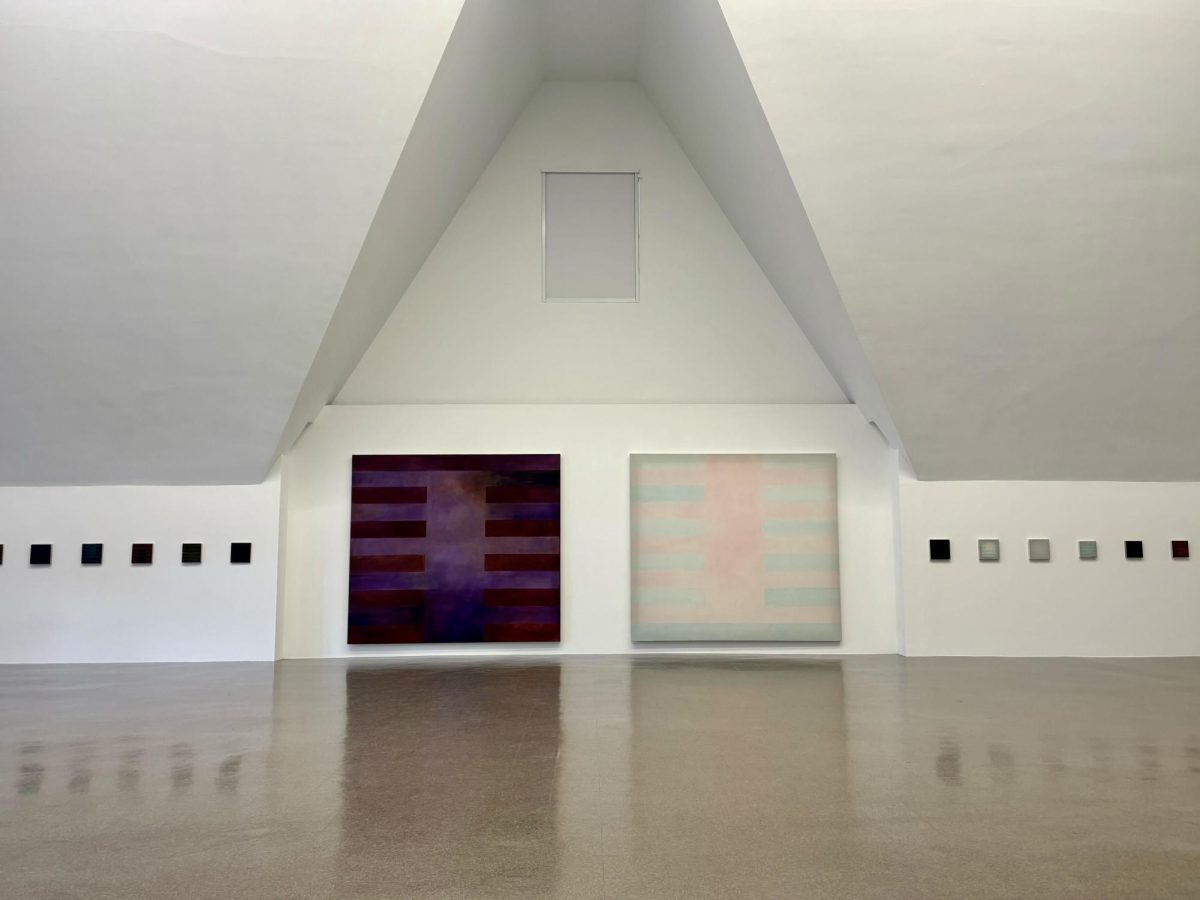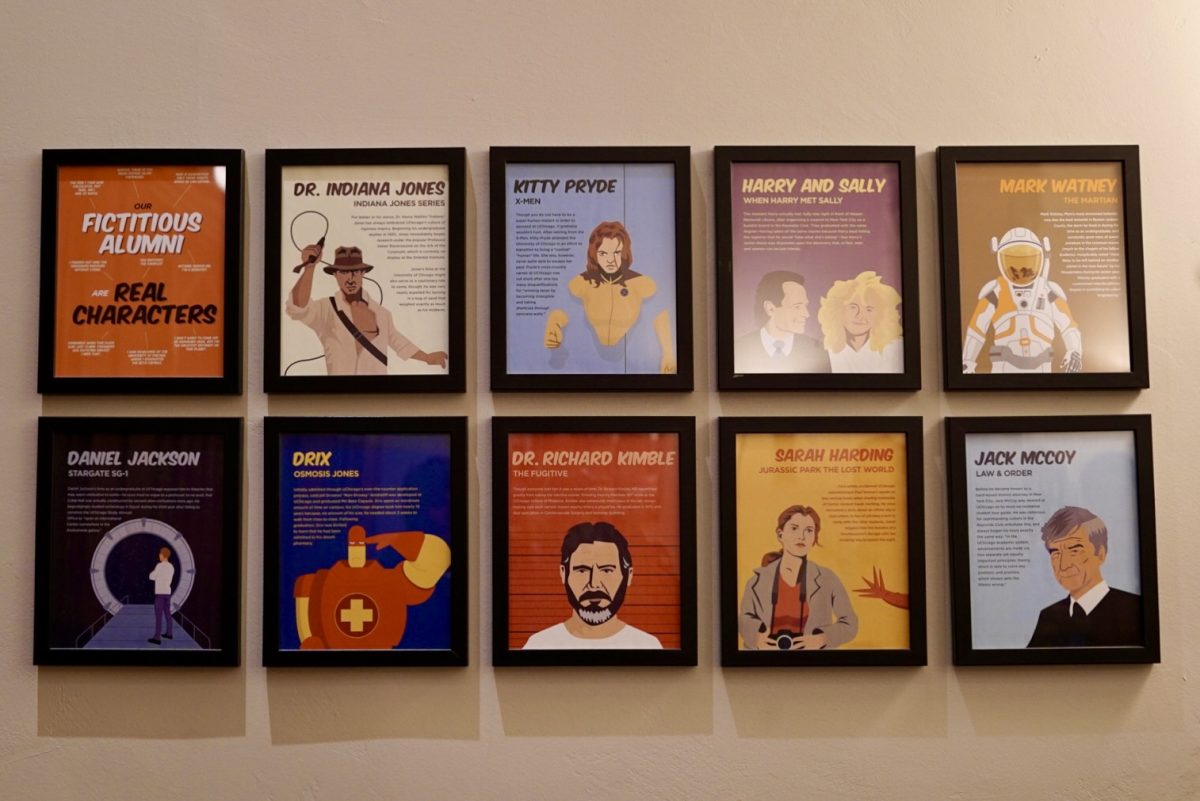Maybe starting a discussion of Stereolab is not best done by asking the question, “Is there a better band than Stereolab?” Similarly, there’s little to be gained by starting the discussion with “Is Jim O’Rourke ruining Stereolab?” Yet both were, at least momentarily, possible points of departure in investigating the ‘Lab’s most recent release, Sound-Dust. After a bit of meandering which produced the hyperdense Cobra And Phases Group Play Voltage In The Milky Night and The First of the Microbe Hunters, Stereolab’s returned to its bread and butter, the ethereal pop from a different, alternate universe where, say, George Bush is not president, and, say, a coherent Brian Wilson and not-dead Serge Gainsbourg are veejays for MTV.
Getting this excited about a release this quickly is a sure sign of lack of objectivity, so, instead, a standard trope, the trope of the background check, will be employed here. Stereolab (formerly the Official Band of The Chicago Maroon) is probably among the more prolific and satisfying bands of the late ’90s (though, of course, their history—at least the part featuring Tim Gane and Lætitia Sadier — stretches back further than that). After exploding in the early nineties with Transient Random Noise Bursts With Announcements and The Groop Played “Space-Age Batchelor Pad Music”, Stereolab settled their personnel and signed with Elektra. This led to the release of the stunning Emperor Tomato Ketchup, which established the band’s sound — a sort of timeless blending of the past (farfisas, other old style keyboards, constant allusion to pop of the late ’60s) with a prefiguring of the future which maybe incorporates the members’ unreconstructed Marxist politics, but, probably more likely incorporates the sort of extra-corporeal etherealism that an identity-free society can demand — not the Marxist society, rather, of course, just the post-structural society of pastiche and simulacra &c.
Dots and Loops followed, and it is probably not only the most accessible and genre-bending of the ‘Lab’s work but also the finest. The mix of past and future is best done here, creating, as has been mentioned repeatedly in these pages, essentially a concept album about le futur antérieur — the future perfect, the tense where something will have been completed. By the time the rest of the world catches up, Dots and Loops will have been deemed the Bible of another era. Lyrics and chord progressions will be posted on public school walls. Everyone will drive Volkswagen Beetles. Estranged labor will have been eradicated. I could go on.
Yet the groop, as they refer to themselves, lost a bit of steam afterward. The anthology Aluminum Tunes followed, which was more anti-time because it literally spanned years of recorded output from the band. Cobra and Microbe Hunters were then released after a lengthy hiatus, but both veer heavily towards the experimental stuff that predated the Elektra signing. Good stuff, of course, but, let’s be serious, not Stereolab. Personally, I blamed Jim O’Rourke. The glory days featured knob-twiddling assistance from Tortoise’s John McEntire and the German duo Mouse on Mars. O’Rourke’s introduction into the mix changed things. Some day, an adventurous music historian will try to find the Brian Eno to Stereolab’s Talking Heads — the external influence that had his hand in the mix for some of the group’s best work but still makes the historian feel queasy. Do you understand how awful it is to admit that Remain in Light is largely Eno’s fault? It just does not seem fair. Sure, we have Adrian Belew with that crazy guitar solo on “Born Under Punches” — but, then, goddamn Eno.
Maybe O’Rourke is similar — a guy whose own work is ok and all, but when he mixes with a great band, stuff gets electric. Cobra does not suggest this, as, in fact, it’s O’Rourke’s string arrangements that drag the album down (among other things), but now we’ve moved to today, and we have to look at Sound-Dust, where O’Rourke’s name appears six times in the liner notes. McEntire is also all over this album, engineering wherever O’Rourke isn’t. Finally, Sean O’Hagan is the third non-‘Lab collaborator featured, and his horn arrangements make Sound-Dust as good as it is.
Earlier a picture of the future was drawn based on pastiche, on a spirited and understood abandoning of some sort of fundamental structure holding any systems of meaning or understanding together. Sound-Dust makes more references to a kind of disjointed musical whole more than any previous Stereolab release. “Refractions in the Plastic Pulse,” from Dots and Loops reaches this sort of similar feel — it is essentially a track made up of four movements. But it is also 17 minutes long, so breaking the track up is necessary. Sound-Dust tightens everything up; each track is broken across different moods and feelings. Saying “yet there is still a cohesiveness” is wasteful, since that is just applying outdated standards to the work. Who gives a shit if it’s cohesive? It’s great.
“Gus the Mynah Bird” jumps to mind as a quick example of this. The lyrics are strongly anti-globalist/anti-colonial, but, more importantly, the song completely deconstructs itself just over three minutes in. A sleepy song with Sadier singing a syllable every three seconds (or so it seems) devolves into an anxiety-fueled ambient mix of noise punctuated by sharp and arrhythmic pings. “Captain Easychord,” the third track and the putative hit track, also bends through various permutations as it winds through its course. The track begins relatively simply (by Stereolab standards), but a minute in, the pounding piano and horn sections give way to an inversion notable because steel guitars are what sustain the section. The two different pieces fend off against each other, until only a minute later the instruments fall away leaving only hissing percussion. The track returns with a completely different feeling, sending completely different signals. As a final gesture, the song’s lyrics flip between English and French — but are not, like in Blondie’s “Sunday Girl,” simply saying the same thing in two different languages.
“Spacemoth,” a more adventurous track, begins with a “Lucy in the Sky with Diamonds”-like crawling around which keeps the climbing feeling from the previous track (the opening “Black Ants in Sound Dust” which is sort of a refigured “Itsy Bitsy Spider”) before it fades out and a heavy, driving sound returns. This is the sort of disjointed stuff that makes the best parts of Dots and Loops such a treat. For all the work about maintaining a bridge between the past and future, Sound-Dust works precisely because it keeps the listener’s attention firmly grounded in the present. What just transpired is not as important as what is happening, and what is to come is only theoretically knowable, anyway. In any case, “Spacemoth” then shifts gears again, taking on a heavily peppy and poppy attitude which, with the peculiar horn arrangement, calls to mind, no joke, They Might Be Giants (except without the annoying vocals, of course).
Cobra featured a certain darkness of tone which seemed at odds with previous Stereolab releases. Emperor Tomato Ketchup and Dots and Loops have moments of wistful longing — “Rainbo Conversation” and “Cybele’s Reverie” — but mostly the albums feature a tangible collection of excitement and forward, happy progress. Old Stereolab tracks used to move along with a pushing guitar (seeing them live, one could see Gane in the background — a pudgy David Duchovny with a mop haircut and no wild phone sex addiction — constantly strumming his axe in for every eighth note of every track). “Nothing to Do with Me” achieves that old school feeling, especially with the forceful lyrics with both Sadier and Mary Hansen. Portions of “Baby Lulu” and the fantastic “The Black Arts” do the same. The latter, actually, seems to be an heir to the longing of “Rainbo Conversation,” with Sadier singing, “I need somebody, I feel so lonely. Somebody to share, my scarcity.” Additionally, “Hallucinex” recalls mid-late-’90s ‘Lab, too, with its lush flute lines and adorable lyrics (Sadier’s whimsical “boom”s and “bang”s are followed by literal sounds of explosions). Finally, “Double Rocker,” fades away with the allusions to Stereolab of the past, before pushing ahead.
The penultimate track of the album, “Suggestion Diabolique,” returns to the earlier points of anxiety as it starts with tones of dread and fright before moving into a drum-heavy portion which tries to rescue the previous work from the malaise in which it was drowning. But, as mentioned above, since the context matters little from second to second, it’s going to fail. The listening experience becomes one of detachment, especially once the drums on the track drop away and the previous site of dispute (creepy beginning) returns, now featuring an even stronger Edward Scissorhands weirdness with reaching flutes. “Les Bons Bons des Raisons” follows “Suggestion Diabolique,” and frames the whole album. It gives us the key to what has just passed, which initially frustrates as it is hardly helpful. The track even begins halfway in, like a reprise, as though the listener has already a complete understanding of the themes of the track, which she does. Sadier sings about “humming to Auntie Shiela my torment, my bother.” Shiela responds and gives “chocolat la la la la la la la la,” these candies which are “far better than reasoning.” These chocolates, these bons-bons are far “better than reason, sweeter than reason.”
That, clearly makes sense. Stereolab with Sound-Dust has constructed a totally deconstructed album. It starts not at the beginning, questions its progress all the way through, and winds away hinting at a solution before asserting that, essentially, there’s no reason to try and reason together an understanding, as these chocolates will always be better and sweeter. Cheers.









Mr.Man / Jan 30, 2024 at 10:36 am
Review aged like milk